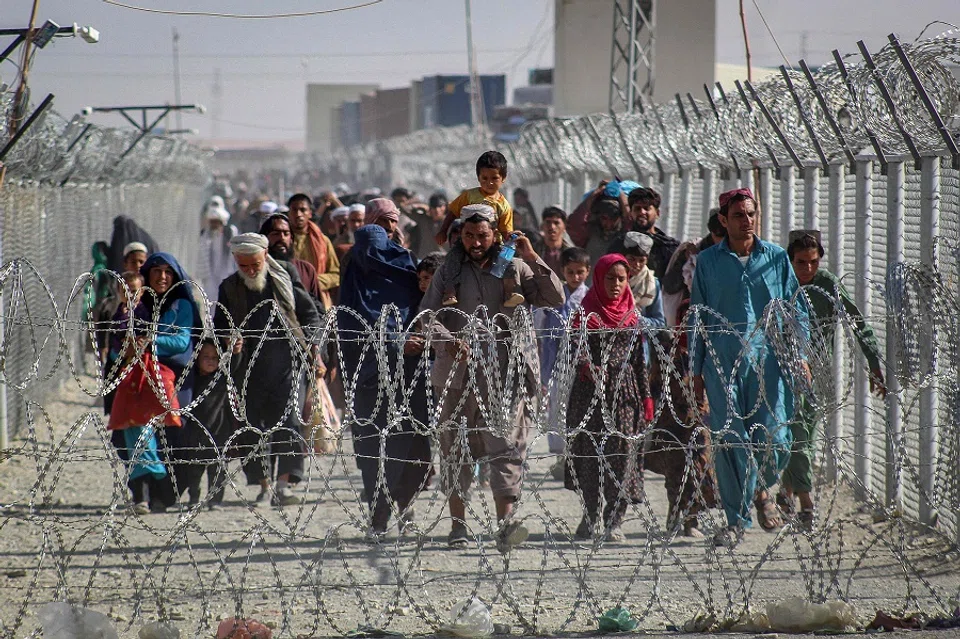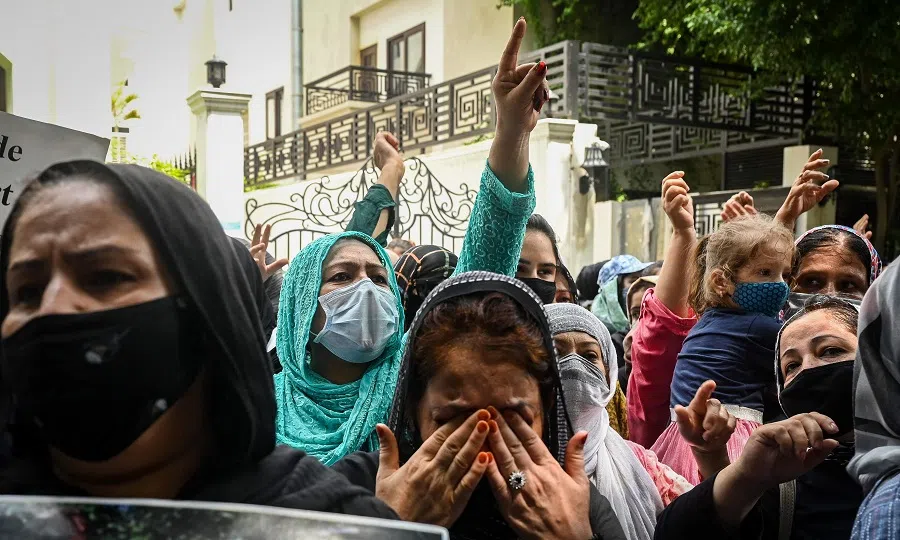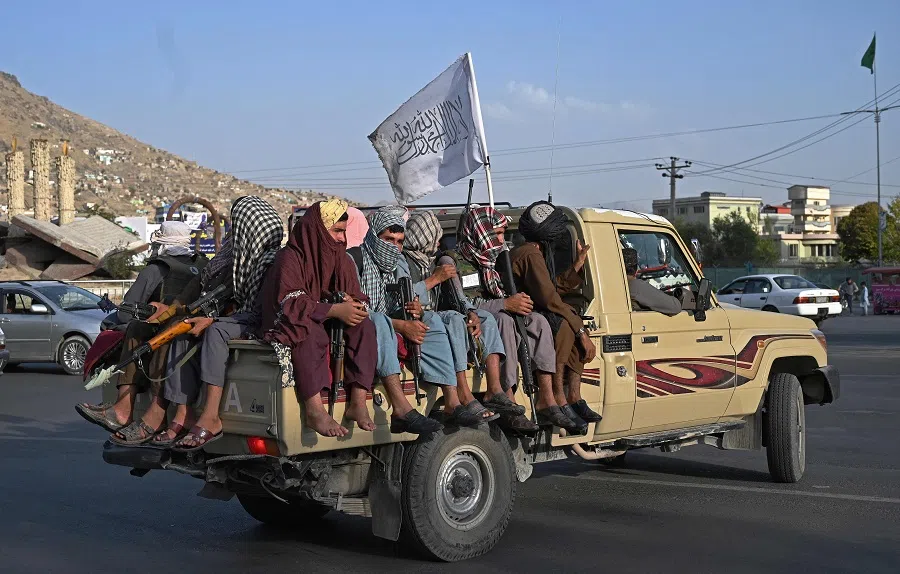Afghanistan in the calculations of India, Pakistan and China: Is there common ground among rivals and allies?
A triumphant Taliban presents unique and unprecedented challenges for Afghanistan's neighbours. As the international spotlight continues to shine on the Taliban, it remains difficult to discern between reality and ruse in the Taliban's rhetoric. The future of Afghanistan appears uncertain, and most countries remain watchful. India has refrained from advancing a clear diplomatic position while China and Pakistan have shown a cautious willingness to engage with the Taliban. While all three countries view Afghanistan with diverging agendas, a stable, inclusive Afghanistan remains in their mutual interest.

The swiftness of the Taliban's takeover of the country surprised even the most seasoned observers of and commentators on Afghanistan. Although the Taliban have won the war, the strength of their hold on a restive Afghanistan is not yet known. Indeed, pockets of resistance persist including forces in the Panjshir Valley which continue to resist the Taliban advance. But questions around the reach, legitimacy and coherence of a forthcoming centralised Taliban-led state and its capacity to accommodate and work with opponents, local and regional leaders and those with differing ideologies and interests are perhaps the most pressing. A successful, stable long-term government will require accommodation, responsiveness to change and political consensus rather than force or the threat of force alone. Not known to share power, it is unclear whether the Taliban have learnt this important lesson in governing Afghanistan.
Rebuilding a post-war Afghanistan also poses gargantuan challenges which the Taliban appear ill-equipped and inexperienced to deal with having spent some two decades fighting from the shadows. Afghanistan will require outside help and the Taliban have acknowledged this need. They have moved quickly to dispel mounting international concerns relating to gender and minority rights, foreign relations, regional security, and the lucrative narcotics trade in Afghanistan through recent press and media engagements. For all intents and purposes, the Taliban leadership appear to be saying the right things. But these assurances offer little insight into concrete aspects of governance. That the Taliban have reformed in any meaningful sense is yet to be seen. The threat of the genocide of minorities, the politicide of opponents and the mistreatment of women in Afghanistan remain omnipresent. As the future shape of the Islamic Emirate of Afghanistan appears altogether uncertain, it is not what the Taliban say before an international audience that matters, but rather what they do once the world moves on from Afghanistan which will signal the group's true intentions.
The fall of Kabul presents the challenge of an emboldened Pakistan in the region and anxieties over the fate of its investment projects in Afghanistan and the global resurgence of militant Islamism and extremism.
Diplomatic conundrum for New Delhi; Pakistan and China see opportunity
Unsurprisingly, most nations have refrained from advancing a clear diplomatic position or commitment towards the Taliban. India is a case in point. But Pakistan and China have been notable exceptions.
A triumphant Taliban poses a diplomatic conundrum for New Delhi. India and the US share a close strategic partnership and both nations have been outspoken on the virtues of democracy, the peace process and against the forceful seizure of power in Afghanistan. India participated in the reconstruction of Afghanistan through development aid after the fall of the Taliban regime. It had also supported the Northern Alliance against the Taliban prior to 2001 and enjoyed good relations with the US-backed Afghan government. The fall of Kabul presents the challenge of an emboldened Pakistan in the region and anxieties over the fate of its investment projects in Afghanistan and the global resurgence of militant Islamism and extremism. New Delhi has not stated its position on the Taliban to date choosing instead to focus its attention and official statements towards the safe return of Indian nationals.

The takeover by the Taliban is viewed in Islamabad as a major strategic win. Although Islamabad has not officially acknowledged the Taliban, it has shown an eagerness to engage with the group at a diplomatic level. Pakistan has long supported the Taliban insurgency and facilitated the Taliban's recent diplomatic missions abroad and public image makeover. Installing a pro-Pakistan, anti-India regime in Kabul has been Islamabad's main objective and the Taliban, for now, fit the bill. Islamabad also hopes to leverage its close relations with the Taliban to reshape its relationship with major international and regional powers such as China, the US and Russia, and maintain its role as the primary go-between the Taliban and other states and powers. As Pakistani Foreign Minister Shah Mahmood Qureshi recently declared: "Now the world is contacting Pakistan."
But there are major risks to this potentially "pyrrhic victory" - as former Pakistani ambassador Husain Haqqani calls it. The likelihood of a blowback of militant Islamism and extremism into Pakistan is a genuine concern. Just as the Afghan Taliban have used Pakistan for refuge and strategic depth against the Afghan republic, the Tehreek-i Taliban Pakistan (or the Pakistani Taliban), having been driven out of Pakistan, now operates from Afghanistan to carry out cross-border attacks into Pakistan. Pakistan and China both hope that the Taliban will supress Islamist groups which threaten the two country's security interests and sovereignty. But in July, Pakistan's top military commanders warned the country's parliamentarians in a confidential meeting that the Afghan and Pakistani Taliban were effectively "two faces of the same coin".
There has also been considerable speculation of Pakistan's role in facilitating a stable Afghanistan conducive to Chinese investment and economic engagement.
China fears threat to security interests
The Chinese have shown concerns over the containment of the East Turkestan Islamic Movement and the threat this group poses to Beijing's security interests in China's restive Xinjiang province. But the Taliban's capacity and political will to deliver on this issue remain to be seen. Afghanistan also presents considerable economic opportunities for China from accessing lucrative mining resources to possible integration into the Belt and Road Initiative. For a Taliban striving for international recognition, the political and economic incentives of working with China are all too clear. There has also been considerable speculation of Pakistan's role in facilitating a stable Afghanistan conducive to Chinese investment and economic engagement. Pakistan offers important diplomatic connections for the Taliban. But Pakistan's leverage over the Taliban is difficult to determine. Convenience, rather than ideology, bind the two together.

Beijing, consequently, is cautious both in terms of what the Taliban will do and what Pakistan can deliver. Investing in Afghanistan, moreover, poses enormous risks. The failure of the US venture reconfirms Afghanistan's resistance and suspicion of foreign involvement. China has also learnt from its time in Pakistan that militant groups, political instability and corruption present formidable challenges towards materialising economic goals. The Chinese have therefore promised little beyond showing a willingness to diplomatically engage with a compliant Taliban.
...all three countries share a common denominator in seeing a stable, inclusive Afghanistan and preventing the large-scale spill over of religious violence into their respective territories.
India, Pakistan and China view Afghanistan through their own lenses. Despite rivalries, politics and diverging interests, all three countries share a common denominator in seeing a stable, inclusive Afghanistan and preventing the large-scale spill over of religious violence into their respective territories. Here, perhaps, there is some common ground for future cooperation which also serves in the interest of the Afghan people. But the real imponderable is whether the Taliban will play ball.


![[Big read] When the Arctic opens, what happens to Singapore?](https://cassette.sphdigital.com.sg/image/thinkchina/da65edebca34645c711c55e83e9877109b3c53847ebb1305573974651df1d13a)


